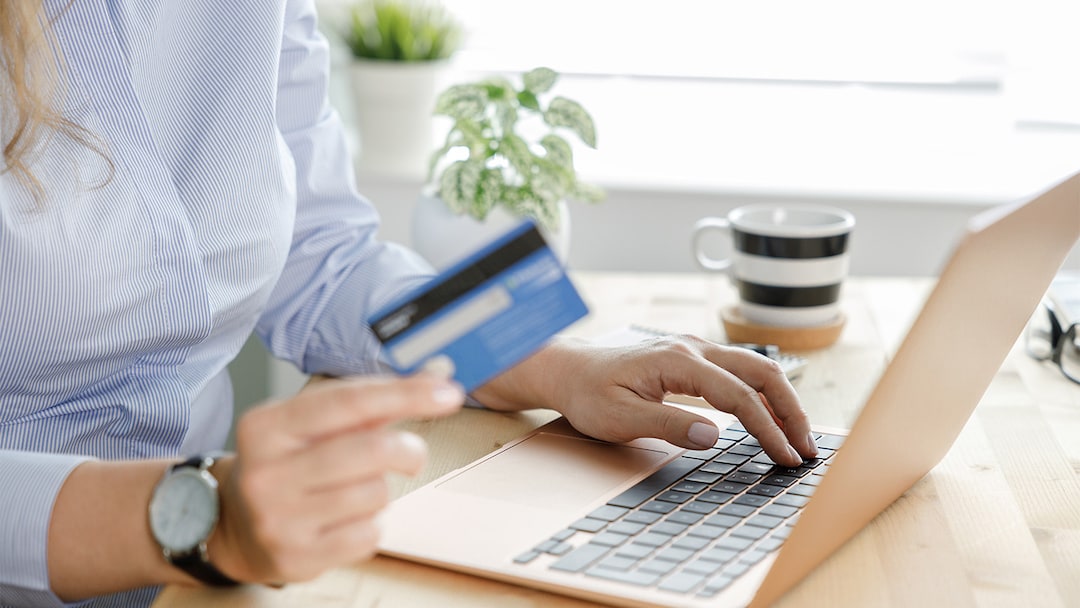What are the pros and cons of using a credit card?

Quick insights
- Responsible credit card use has the potential to help improve your credit score and establish a stronger credit history, both of which are important when applying for lines of credit.
- Late credit card payments and debt accumulation can negatively impact your credit score and overall credit profile.
- To make your credit experience a positive one, consider implementing regular, healthy habits such as maintaining a low credit utilization ratio.
Before you decide to apply for a credit card, you may want to weigh some of the pros and cons of using one. Whether you’re new to credit or have been using credit cards for a while, it can be helpful to understand the ways your next credit card may help or hurt you in the long run.
Understanding some advantages of using a credit card
There are a few pros that come with using a credit card, including the following:
- Build a credit history: Regular, responsible use of a credit card can help establish your credit history, which is an important part of building your credit profile.
- Establish and begin raising your credit score: Using a credit card can be one step you can take towards establishing a credit score, a three-digit number that indicates your creditworthiness. Wisely using a credit card can help improve your score, which can in turn improve your chances for future approvals for other lines of credit.
- Rewards and cashback: Some credit cards may come with rewards or cashback programs, meaning you can earn points or money back on purchases you make using your credit card.
- Security: Credit cards offer a safe alternative to carrying cash, as you can cancel or freeze your card in the event of theft or fraud.
- Convenience: You may be able to add your credit card to a digital wallet on your smartphone.
- Purchase protection: Some credit cards offer warranties and insurance on purchases that aren't typically available with debit cards or cash transactions.
Keep in mind that, to fully benefit from the pros of using a credit card, you need to use the credit card responsibly. This means making regular, on-time payments, avoiding debt accumulation and more.
Recognizing some disadvantages of credit card usage
There are some cons to using a credit card, including:
- Potential for debt: With a credit card, it may feel easier to spend more than you can afford due to the availability of credit, possibly leading to debt accumulation.
- Interest and fees: If you don't pay the full balance each month, this can lead to high interest charges, which may snowball your debt over time. If you have trouble making payments on time, you may have late fees that could further increase the debt.
- Impact on credit score: Making late payments or nearing your credit limit can negatively affect your credit score. Late or missed payments may leave a negative mark on your credit report, which can last up to 7 years.
How to use your credit card responsibly
To enjoy the benefits that come with using credit cards, it’s important to establish healthy financial habits so that you consistently use your credit wisely. Below are a few ways you can use your card in a responsible, healthy manner:
Set a budget
Use your credit card within a set budget to help avoid overspending. For instance, allocate a specific portion of your monthly income to credit card expenses. This may help you lower or maintain your credit utilization ratio, or the amount of credit you use against your total available credit. This ratio should preferably be at 30% or less.
Pay balances in full
When possible, pay your credit card balances in full and on time. This may help you avoid interest rate charges, which can become costly over time. Payment history is also a major factor that gets calculated into your credit score, so you may be able to improve your credit score by making your payments on time and in full each month.
Monitor your credit
As you use your credit card, it can be helpful to review your credit usage, credit score and credit report. For example, you may want to review your credit score once a month to keep an eye out for potential fluctuations. Additionally, reviewing your credit report can give you insights into your credit usage. You can get one for free annually from the credit bureaus, Experian™, Equifax® and TransUnion®. Check your credit card statements for errors or unauthorized transactions and flag potential signs of fraud or theft to your credit card issuer.
Set up alerts and limits
You may be able to set up alerts and reminders for when credit card payments are due. You can also set a certain credit limit for yourself so that you can keep track of your usage and spending. Finally, consider enrolling in automatic payments to help stay on top of payments.
In conclusion
There are potential benefits to using a credit card, such as earning rewards or the chance to build a positive credit history. There are also some disadvantages, as irresponsible usage can hurt your score, increase interest costs and more. A credit card can be a useful tool to build your credit history and credit score, but to do so, use your credit responsibly. This means making regular, on-time payments, keeping a low credit utilization ratio and other healthy financial habits.



